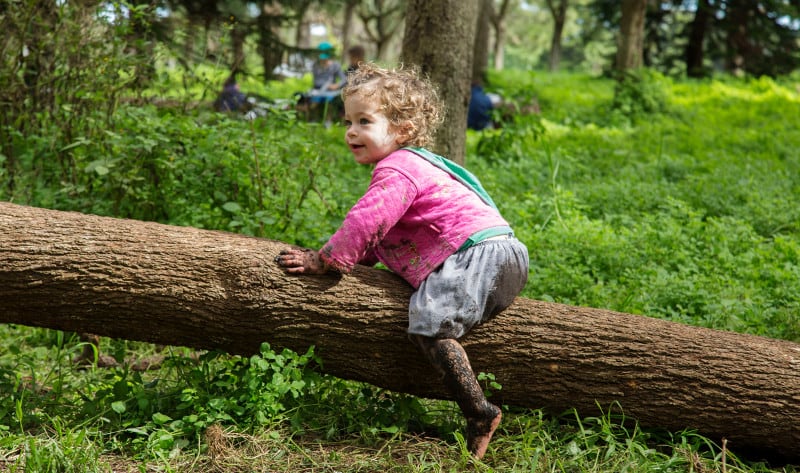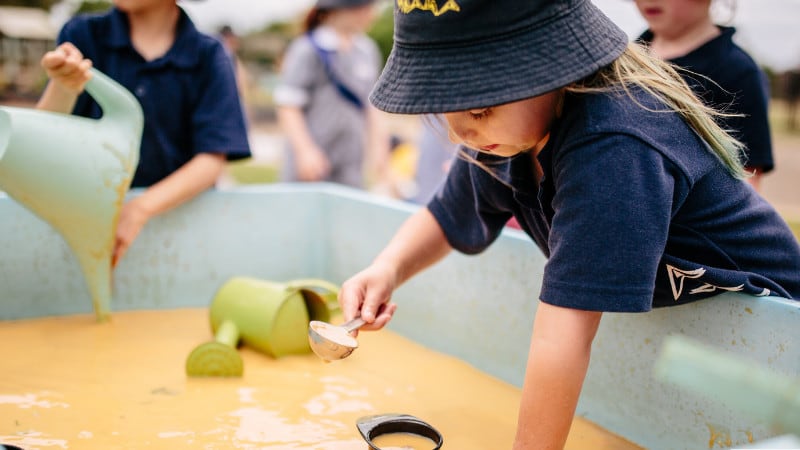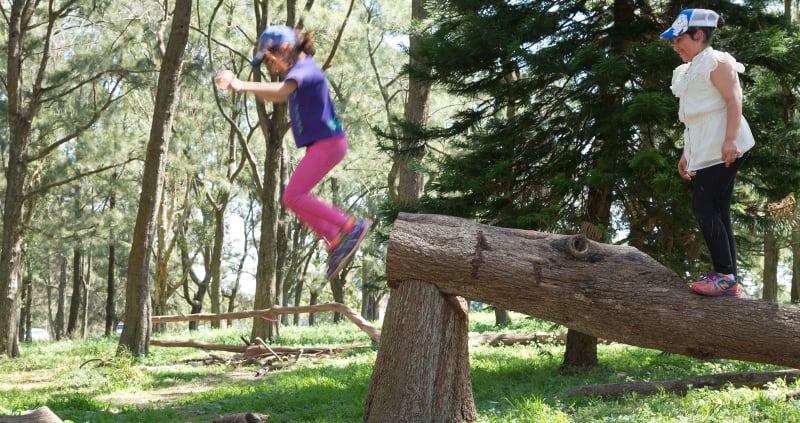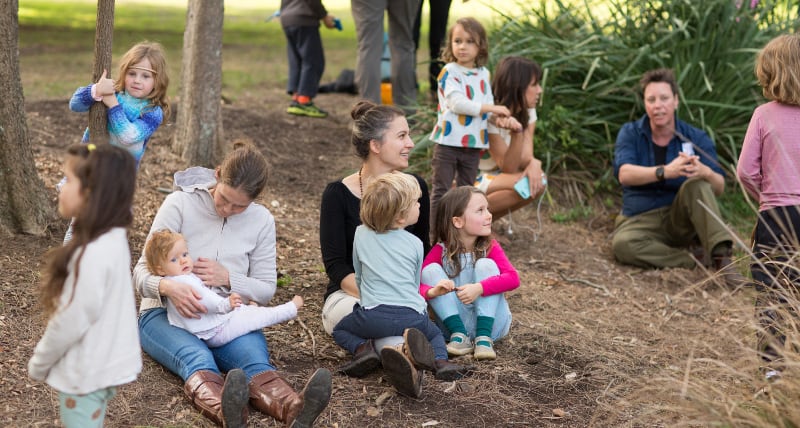It’s human nature for children to want to test their limits and learn through exploration. Programs around the world have be designed to turn education on its head by embracing play and the great outdoors.
For some parents and many teachers, the idea of bush schools can be alarming. As caregivers we want to avoid any risks or hurt for our children, this is human nature. When outside with kids, adults can find themselves helicopter hovering, yelling “no” or “watch out” far too often, and restricting behaviour they themselves would have loved as a child.
However, it’s also in our nature to want to stretch ourselves, test our limits, and learn through exploration. Programs around the world run by highly skilled early learning experts have been designed to turn learning and education on its head. Bush schools encourage this exploration and experimentation and push children to their physical limit. For a caregiver of a tiny three-year-old, the thought of this can be quite confronting. What they may not realise, however, is just how valuable this kind of learning can be.
 Young children love the sensory experiences of the outdoors
Young children love the sensory experiences of the outdoors
The origins of forest schools in Scandinavia
While Australia is still learning how to implement these theories into our preschools, the idea of forest schools (generally referred to as bush schools in Australia) has been around for decades. Originating from Scandinavia, the idea was developed to engage young people in their environment. The first recorded of its nature was a “walking kindergarten” established by Ella Flatau in the 1950s.
By the 1980s, when more women were working and required pre-schooling assistance, the need for childcare had increased massively. In a bid to address the lack of classroom-based child cares in Denmark, forest schools began to pop up over the country. The educators started to notice real changes in the children’s development, increased creativity, and confidence compared to simple outdoor play. They fast became a very popular alternative to indoor classroom-based childcares.
 A student at Outdoor Classroom Day 2018 at Centennial Parklands
A student at Outdoor Classroom Day 2018 at Centennial Parklands
Spreading like wildfire
Over the next decade or so countries around Europe started to embrace this innovative way of learning. Forest schools were popping up everywhere. The British have enthusiastically embraced the notion of the forest school, and the trend has spread over the isles.
As schools have opened around the world, the wide eyes of their young students have inhaled the nature around them, learning, creating, crafting and more. Around the world, children are exposed to a kind of learning that is both scary and enthralling and the results are incredible.
 Taking calculated risks grows resiliance, confidence and wellbeing
Taking calculated risks grows resiliance, confidence and wellbeing
Why outdoor play is crucial
As scary as it might sometimes appear to the concerned parent, the advantages far outweigh the risks. Children exposed to learning in this way show real development advantages comparative to their indoor learning counterparts. Taking physical challenges outdoors teaches children how to take a calculated risk in other areas of their lives.
Between the ages of three and twelve, children go through what is known as a “developmental window of opportunity”. The skills that are developed over this time are the foundations of a young person’s learning in general. Research has shown that exposure to nature, risk and physical challenges has a confirmed positive effect on a child’s resilience, confidence and overall wellbeing. In fact, research shows that children who are not exposed to nature run the risk of what is known as “nature-deficit-disorder”, which can lead to ongoing behavioural problems.
 Families at the Centennial Parklands Bush School
Families at the Centennial Parklands Bush School
Australia is beginning to embrace outdoor play
The notion of bush schools is still relatively new in Australia. While there are a number of schools and early learning centres starting to pop up around the country, the idea that nature play plays a crucial role in effective teaching is relatively new.
Centennial Parklands has had a deep interest in promoting nature play for all young people and is leading the way in nature play in NSW. Our education rangers have been trained in this pedagogy providing engaging programs for children whilst meeting curriculum outcomes.
Centennial Parklands even works with TAFE NSW to deliver an education initiative, Bush Connections, to train and educate early learning specialists in nature and forest learning. The Park has run short programs for children and young people for many years and continues to tap into the pedagogical developments around the world to offer engaging and explorative programs.
Join us for outdoor learning in one of our nature play programs for families or children. We have bush school programs for pre-schoolers, 5-12 years, school curriculum programs, community events and the free Ian Potter Children’s WildPlay Garden.
For educators, Outdoor Classroom Day NSW, in partnership with Nature Play Australia and Centennial Parklands, returns Thursday 7 November 2019. Find out more about making the most of outdoor learning with Outdoor Classroom Day and Centennial Parklands.